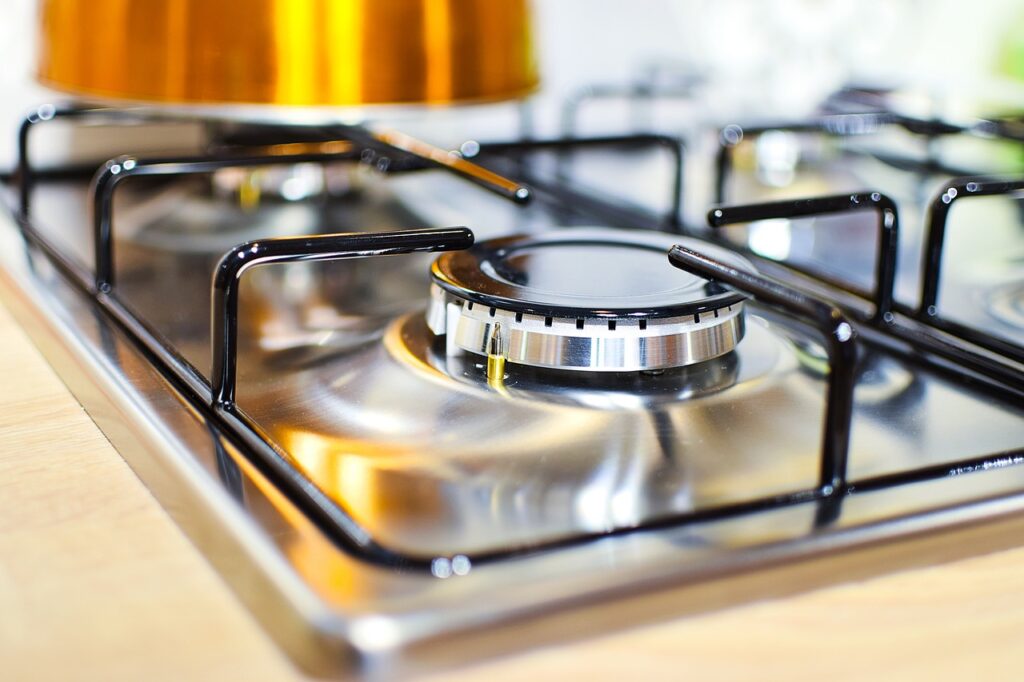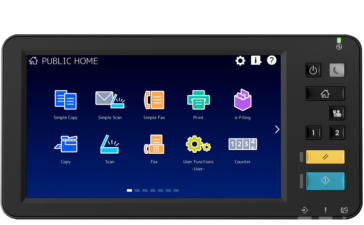In today’s world, safety is paramount, especially when it comes to the appliances we use in our homes. One crucial aspect of safety in relation to gas appliances is the Gas Safe Register. This official register ensures that only qualified engineers work on gas appliances, protecting households from potential hazards. Established in 2009 as a replacement for the CORGI registration, the Gas Safe Register is now an essential part of gas safety in the UK. In this blog post, we will explore the significance of the Gas Safe Register, its functions, how it operates, and why it is crucial for every homeowner to understand.
What is the Gas Safe Register?
The Gas Safe Register is the official government-backed registration scheme for gas engineers in the United Kingdom. It serves as a comprehensive database of qualified professionals who are legally permitted to work on gas appliances, ensuring that they meet the highest safety standards. Every engineer on the register has undergone rigorous training and assessment, proving their competency in handling gas installations and maintenance.
The establishment of the Gas Safe Register in 2009 marked a significant change in how gas safety is managed in the UK. The previous CORGI registration scheme was phased out, and the Gas Safe Register took its place to improve safety standards and enhance consumer confidence. This transition has been vital in ensuring that gas work is performed only by qualified personnel.
The Importance of the Gas Safe Register
Understanding the significance of the Gas Safe Register is crucial for every household. Here are some reasons why this register is vital:
1. Safety Assurance
The primary purpose of the Gas Safe Register is to ensure the safety of gas installations and appliances. By allowing only qualified engineers to work on gas systems, the register significantly reduces the risk of gas leaks, explosions, and carbon monoxide poisoning. Homeowners can have peace of mind knowing that their gas work is handled by professionals who adhere to strict safety regulations.
2. Legal Requirement
In the UK, it is illegal for anyone who is not registered with the Gas Safe Register to carry out gas work. Homeowners hiring unregistered individuals not only compromise their safety but also expose themselves to legal repercussions. Using a registered engineer is a legal requirement for any work involving gas appliances.
3. Consumer Protection
The Gas Safe Register provides a level of consumer protection by ensuring that registered engineers are qualified and competent. Homeowners can check the registration of an engineer, which helps them make informed decisions about who to hire for their gas needs. The register serves as a safeguard against unqualified or rogue traders.
4. Regular Inspections and Reassessments
Registered engineers are subject to regular inspections and reassessments to ensure they maintain their skills and knowledge. This ongoing evaluation process helps to keep standards high within the industry. The Gas Safe Register continuously monitors its registered engineers, ensuring that they comply with the latest safety regulations and best practices.
5. Access to Information
The Gas Safe Register provides valuable information and resources for both engineers and homeowners. It offers guidance on gas safety, updates on regulations, and advice on best practices. Homeowners can access information about their gas appliances and understand what to look for when hiring an engineer.
How the Gas Safe Register Works
The Gas Safe Register operates through a well-defined process that ensures only qualified engineers can work on gas appliances. Here’s a closer look at how it works:
1. Registration Process
To become a registered engineer, individuals must complete a comprehensive training program that includes theoretical knowledge and practical assessments. This training covers various aspects of gas safety, appliance servicing, installation, and maintenance.
Once the training is completed, candidates must pass the necessary assessments to demonstrate their competence. Upon successful completion, they can apply for registration with the Gas Safe Register. This process ensures that only skilled professionals are granted access to work on gas appliances.
2. Ongoing Training and Development
After becoming registered, gas engineers must engage in continuous professional development. This requirement ensures they stay updated with the latest industry standards, safety regulations, and technological advancements. Regular training and refresher courses help maintain a high level of competence among registered engineers.
3. Inspection and Monitoring
The Gas Safe Register conducts regular inspections of registered engineers to verify their compliance with safety regulations. These inspections assess the quality of work, adherence to safety standards, and overall professionalism. Engineers who fail to meet the standards may face penalties, including removal from the register.
4. Consumer Engagement
The Gas Safe Register actively engages with consumers to promote awareness of gas safety. Homeowners are encouraged to check the registration of engineers before hiring them. The Gas Safe Register provides tools and resources, including an online database where consumers can verify the registration status of gas engineers.
5. Reporting and Accountability
Consumers are encouraged to report any concerns or issues they encounter with gas work. The Gas Safe Register takes such reports seriously and investigates any allegations against registered engineers. This accountability mechanism ensures that safety remains a top priority and helps maintain public trust in the system.
Checking an Engineer’s Gas Safe Registration
One of the most critical steps homeowners can take to ensure their safety is to verify the registration of any gas engineer they intend to hire. The Gas Safe Register provides a straightforward process for checking an engineer’s credentials:
- Visit the Gas Safe Register Website: The official Gas Safe Register website offers a dedicated section for consumers to check an engineer’s registration status.
- Enter Details: Homeowners can enter the engineer’s name or registration number to access their profile. This profile includes information about the engineer’s qualifications, the type of gas work they are authorized to perform, and their contact details.
- Look for the Gas Safe Logo: Registered engineers carry a Gas Safe ID card that displays their registration number and a photograph. Homeowners should always ask to see this ID card before hiring an engineer. If the engineer cannot provide this card, it is a clear indication that they are not registered.
- Review the Engineer’s Qualifications: The Gas Safe Register website provides information about the types of appliances an engineer is qualified to work on. Homeowners should ensure that the engineer they hire has the appropriate qualifications for the specific gas work required.
- Check for Reviews and Feedback: In addition to verifying registration, homeowners can look for reviews and feedback from previous clients. This information can provide valuable insights into the engineer’s professionalism and quality of work.
Common Gas Safety Issues
Gas safety is not just about hiring a qualified engineer; homeowners also need to be aware of common gas safety issues that can arise. Understanding these issues can help individuals recognize potential problems and take appropriate action:
1. Gas Leaks
Gas leaks are one of the most dangerous issues related to gas appliances. Homeowners should be vigilant for any unusual smells (like rotten eggs), hissing sounds, or other signs of a gas leak. If a leak is suspected, it’s crucial to turn off the gas supply, evacuate the premises, and contact a Gas Safe registered engineer immediately.
2. Carbon Monoxide Poisoning
Carbon monoxide (CO) is a colourless, odourless gas that can be produced by faulty gas appliances. Symptoms of CO poisoning include headaches, dizziness, nausea, and confusion. Homeowners should install CO detectors in their homes and have their gas appliances regularly serviced by registered engineers to prevent this risk.
3. Poor Ventilation
Inadequate ventilation in rooms with gas appliances can lead to dangerous build-ups of gases. It’s essential to ensure that areas with gas appliances are well-ventilated and that air supply is sufficient for safe operation.
4. Incorrect Installations
Improper installation of gas appliances can lead to malfunctions and safety hazards. Homeowners should only hire Gas Safe registered engineers to ensure that installations are completed correctly and according to safety standards.
5. Lack of Regular Maintenance
Gas appliances require regular servicing to ensure they operate safely and efficiently. Homeowners should schedule annual maintenance with a Gas Safe registered engineer to check for potential issues and ensure the appliances are functioning correctly.

The Role of Gas Safe Register in Education and Awareness
The Gas Safe Register plays a vital role in educating consumers about gas safety. Through various initiatives, the register aims to raise awareness of the importance of using qualified engineers and understanding gas safety issues:
1. Public Campaigns
The Gas Safe Register runs public awareness campaigns to educate homeowners about the importance of gas safety. These campaigns often focus on seasonal issues, such as preparing heating systems for winter, and highlight the dangers of using unregistered engineers.
2. Resources for Consumers
The register provides a wealth of resources on its website, including guides, safety tips, and checklists for homeowners. These materials empower consumers to take proactive measures in ensuring their gas safety.
3. Collaboration with Industry Partners
The Gas Safe Register collaborates with industry stakeholders, including manufacturers, trade associations, and regulatory bodies, to promote gas safety. These partnerships help to disseminate information and establish best practices across the industry.
4. Training and Development Programs
The Gas Safe Register offers training and development programs for gas engineers to ensure they stay updated with the latest safety standards and regulations. These programs enhance the overall competency of registered engineers, benefiting consumers and the industry.
5. Community Engagement
Engaging with local communities is essential for promoting gas safety awareness. The Gas Safe Register participates in community events, workshops, and seminars to educate individuals about gas safety and the importance of using qualified professionals.
Conclusion
The Gas Safe Register is an essential part of ensuring safety in gas appliances across the United Kingdom. By replacing the CORGI registration in 2009, it has established a robust framework for regulating gas engineers and protecting consumers from potential hazards. Homeowners must understand the significance of the Gas Safe Register, the registration process, and the importance of hiring qualified engineers for gas work.
As we move forward, continued education and awareness about gas safety will be vital in maintaining high safety standards. The Gas Safe Register remains committed to promoting gas safety, supporting registered engineers, and empowering consumers to make informed decisions about their gas appliances. By prioritising safety and adhering to the Gas Safe Register guidelines, we can all contribute to a safer environment for our homes and communities.
Whether you’re a homeowner or a gas engineer, recognizing the importance of the Gas Safe Register will play a crucial role in fostering a culture of safety and reliability in the gas industry. Always remember to check the Gas Safe Register before hiring a gas engineer, and prioritize regular maintenance and safety checks for your gas appliances to ensure peace of mind for you and your loved ones.













